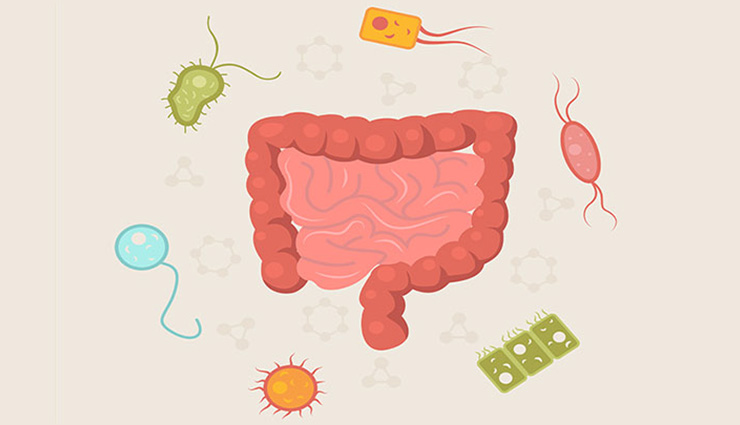
If a large number of bacteria, often of the large intestine type, such as Bacteroidetes and E. coli, penetrate the small intestine so that the number of bacteria in the small intestine is more than 100,000, it is called overgrowth syndrome.
The syndrome of overgrowth of intestinal bacteria is also called blind loop syndrome. Impaired small bowel movements and decreased gastric acid secretion are the most common causes of the overgrowth of intestinal bacteria. The best way to diagnose this disease is to culture the intestinal tissue. If the number of bacteria in the small intestine is more than 100,000, a person is said to have small bowel bacterial overgrowth syndrome (SBBOS).
Differential diagnoses of small intestinal bacterial overgrowth syndrome
-
Diabetes
-
Gastric surgery
-
Celiac disease
-
Intestinal lactase deficiency
-
Thyroid dysfunction
-
Irritable Bowel Syndrome (IBS)
Clinical manifestations of small intestinal bacterial overgrowth syndrome
-
Burp
-
Stomachache
-
Chronic diarrhea
-
Increased bloating and Intestinal Gas
-
Vitamin B12-induced anemia
-
Deficiency of fat-soluble vitamins A, D, E.
-
Fat absorption and fatty diarrhea due to biliary dysfunction
Risk factors for small intestinal bacterial overgrowth syndrome
People with the following specific medical conditions are more likely to have an overgrowth of intestinal bacteria.
-
Cirrhosis
-
Crohn's disease
-
Celiac disease
-
Hypothyroidism
-
Diabetes
-
Irritable Bowel Syndrome
-
High age
-
Being a female
-
Drinking alcohol
-
HIV
Complications of small intestinal bacterial overgrowth syndrome
-
Steatorrhea: Bile salts are decongested, which reduces the efficiency of micelle formation and occurs with a decrease in steatorrhea fat absorption.
-
Vitamin B12 Deficiency: Due to the damage to the Striated border, as a result of the toxic effects of bacterial catabolism products that cause enzyme deficiency, carbohydrate malabsorption occurs. Increasing the number of bacteria and continuing their growth causes the consumption of vitamin B12.
-
Malnutritionjoint's pain
-
Constipation
-
Hepatic encephalopathy
Nutritional recommendations in small intestinal bacterial overgrowth syndrome
Diet modification should be based on relieving symptoms and correcting nutritional deficiencies. Part of the problem with bacterial overgrowth in the small intestine is that the carbohydrates reach a place where microbes can use them as a source to multiply and subsequently produce gases and organic acids.
-
Lactose-free diet, along with MCT oils and vitamin B12
-
FODMAP diet
FODMAPs are short-chain carbohydrates commonly found in dairy products, grains, certain fruits, and vegetables. Reducing the intake of these foods can relieve symptoms and help people identify stimulant foods. FODMAP food includes:
-
Oligosaccharides: Wheat, legumes, onions, asparagus
-
Disaccharides (lactose): milk, yogurt, butter, soft cheeses
-
Monosaccharides (fructose and glucose): Fruits, honey, foods with added sugar
-
Polyols: fruits that have holes (e.g. cherries and peaches), apples, mushrooms, green beans
-
Elemental diet
An elemental diet is another option for people with intestinal bacterial overgrowth syndrome. This is a fluid-based diet that doctors use to treat severe gastrointestinal diseases.
This diet contains completely nutritious formulas in the form of digestion, which is usually supplied in liquid or powder form and mixed with water before consumption.




